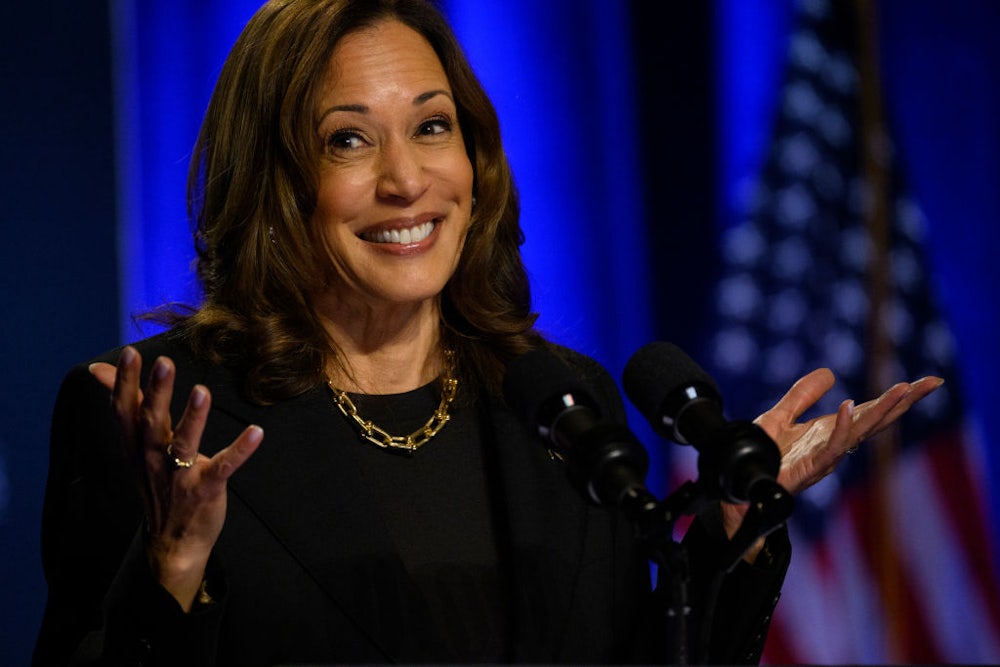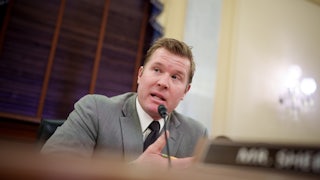Americans should not be miserable about the economy. But they are. President Joe Biden should not be considered a poorer steward of the economy than former President Donald Trump. But he is. And if Americans really think Biden did a bad job on the economy, they should give similarly low grades to his co-pilot, Vice President Kamala Harris. But they’re not.
Meanwhile, this election cycle—like every election cycle in living memory—voters insist that the economy is their top issue. So what the hell is going on here? Are voters only now realizing that the economy is actually in good shape? Or are we perhaps witnessing the death of a tired trope of election analysis?
The conventional wisdom in politics has long been that Americans vote with their pocketbooks. If the economy is bad, voters oust the incumbent. Never mind that unelected institutions like the Federal Reserve arguably have more control over the economy than the president or that the president isn’t personally responsible for job numbers. Sluggish growth, high unemployment or inflation, tanking 401(k) balances—if it’s “on his watch,” a president pays the price at the ballot box. As Democratic strategist James Carville famously said, in boiling down the success of Bill Clinton’s upstart 1992 campaign for president: “It’s the economy, stupid.”
Some politicos even believe a simple statistical formula can predict the outcome of elections: the “misery index,” or the combination of the unemployment rate and the annualized inflation rate. Invented by economist Arthur Okun during the economically miserable 1970s, the index supposedly explains why President Jimmy Carter, facing a misery index of nearly 22 in the summer of 1980, won just six states and D.C. in the general election (though the energy and Iran hostage crises didn’t help). The misery index has predicted the winner in 15 of the last 16 presidential elections, and every one since 1980, according to the economic research and investment firm Strategas, which holds that the misery index must remain below 7.353 for Harris to win (it currently sits at 6.73).
But there’s evidence now that it’s not really the economy, stupid, anymore—even when voters tell pollsters that’s their priority. Or it may nominally be the economy, but an economy defined by Republican leaders and the media, both of which have been inclined to accentuate the negative. “There was just this endless drumbeat about how bad things were under Biden,” macroeconomist Dean Baker told me, noting that inflation was the dominant theme in the media even though wage increases outpaced price hikes.
We would like to believe that the issues—candidates’ policies and records—decide elections. But experts say that voters are more inclined to decide which candidate they like, then fit the issues around them.
“We always think it’s the other way around—that if the facts are one way, they’re going to like that candidate” responsible for them, said Lee Miringoff, director of the Marist Institute for Public Opinion. “But for those who have made up their mind—and that’s a lot of people—the lens they use to look at the issues is very much shaded by the candidate they support.”
Clemson University political science professor Joseph Ura has done research on the impact of the economy on elections. He found that it’s dropped in the past few decades. Ura posits that people are more likely to revert to party identification and fit the issues around it. “We make our choices, and rationalize them,” Ura said.
As president, Trump presided over a relatively low misery index before the pandemic, but his approval ratings were low to middling. (He did finish his presidency with a misery index of 8—higher than in the previous year—and losing reelection, as Strategas predicted.) Biden’s misery index, after spiking at 12.6 in June 2022, plummeted to 6.7 in August. And yet, voters consistently told pollsters that they trusted Trump more than Biden, by a wide margin, to handle the economy and inflation. Voters also ranked both issues at the top of what was on their minds as the general election approached.
It was a constant source of frustration for the Biden White House. How could voters not see how well the economy was doing? And surely, after Biden ended his reelection bid, it became a fear in the Executive Office Building that the Harris campaign would suffer from the same dynamic.
But that’s not what has happened. Harris, who was about as attached to the Biden economic agenda as a candidate not named Biden could be, is about equal with Trump in polls asking voters who would be better on the economy. And voters are still saying the economy and inflation are top worries (inflation is easing, though that’s small comfort to shoppers still paying higher prices).
This makes little sense. But then, Americans don’t always behave or vote the way they say they will. In October 2022, Democrats freaked out over a New York Times/Siena College poll showing that just a few months after the Dobbs ruling and just a few weeks before the midterm elections, only 4 percent said abortion was the most important issue to them. The next month, Democrats overperformed and the vaunted “red wave” never came to pass. Notably, 27 percent of voters in exit polls said abortion was their top issue—barely behind inflation.
So many voters may claim that their decision at the ballot box is driven by the economy, but they can’t entirely be trusted. We won’t get the honest truth—or something closer to it, anyway—until after they’ve actually cast their votes.






